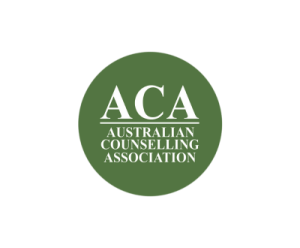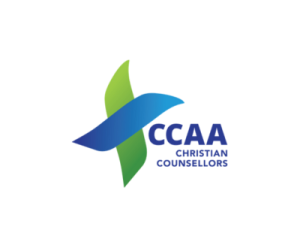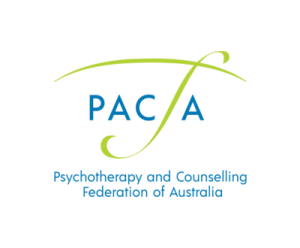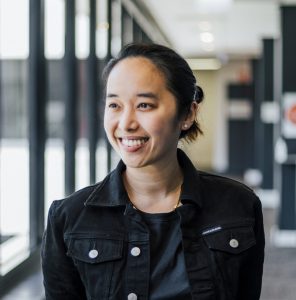Understanding research methodologies is fundamental for any social science or counselling professional. This unit will equip you with the skills to critically analyse and synthesise academic literature, construct evidence-based arguments, and master academic writing and research conventions. By exploring a range of research methods and ethical considerations, you will be prepared to design and conduct studies that make meaningful contributions to your field.
Discover the foundations of faith and how it relates to one's worldview and purpose. Students will explore the Christian story from Scripture and express ideas of their own faith, examine how faith shapes views on the meaning and purpose of life, the value of humanity and ideas of human flourishing. Expand your perspective in this core subject and understand the significance of faith in all areas of life.
Understanding the psychology of emotion and wellbeing is crucial for enhancing personal and professional relationships. This core unit introduces the concepts of emotional development and the social and cultural factors that influence emotions. Students will learn to apply theoretical approaches to understand emotions and interact empathetically with clients. By developing these skills, students are better prepared to support emotional wellbeing in various contexts.
Enhance your ability to communicate effectively in professional people-helping settings. This subject will equip you with learning foundational interpersonal communication skills. Through practical exercises, you will develop your counselling micro-skills including conflict management responses, within a culturally sensitive framework. This unit is designed to meet PACFA and ACA training requirements.
Understanding human development throughout the lifespan is important for providing targeted support and interventions. This subject offers a comprehensive examination of the developmental stages from conception to death, integrating multicultural and critical perspectives. Students will explore major developmental milestones, reflect on personal growth, and develop strategies to assist others in navigating developmental life transitions.
This subject helps to prepare you to work effectively with clients by learning advanced counselling micro-skills and techniques in. With an emphasis on applying micro-skills and evidence-based methods in counselling contexts, you'll learn how to respond to complex needs such as anxiety and stress. This unit aligns with professional practice standards, offering practical, experiential training, that includes role-plays, to continue the development of your interpersonal communication skills.
Gaining insight into mental health conditions is pivotal for providing effective support and intervention. Students in this subject will learn to recognise symptoms, deliver appropriate assistance, and understand the role of the community in supporting mental wellbeing. They will develop skills in treating individuals with empathy, respect, and compassion, while fostering a hopeful and supportive environment.
Gaining a deep understanding of various counselling theories is essential for effective therapeutic practice. This subject provides a comprehensive overview of historical and modern counselling methodologies, from Freudian psychoanalysis to contemporary approaches such as Solution Focused Therapy and Positive Psychology. Students will learn how to critically evaluate different models, reflect on their personal and professional implications, and apply them across diverse therapeutic contexts.
Professional accountability is crucial in developing ethical and effective practice as a counsellor or people helper. This unit is delivered in the same semester as students undertake their supervised field placements and offers weekly group supervision. Students will receive weekly support to help build their assessment and intervention skills, whilst working with actual client’s. The subject meets PACFA's experiential training requirements, focusing on real-world application through case conferences and peer review whilst preparing you to handle professional challenges ethically and effectively, integrating critical reflection and a Christian worldview.
Understanding ethical and legal frameworks is vital for anyone entering the people helping profession. This subject helps students to understand the ethical principles and legal requirements within their field, in order to confidently manage complex ethical dilemmas. You will learn to apply ethical decision-making models, prioritise self-care, and appreciate the importance of ongoing professional development.
This subject equips students to navigate and address the complexities of social anc cultural diversity in professional settings. It aims to deepen their understanding of the impact of diversity on people and practice and prepares students to effectively assess and intervene across diverse contexts. By fostering advanced self-awareness and reflective practices, students will be better positioned to practice ethically and competently in a culturally and socially diverse contexts.
Gaining practical experience in a professional setting is essential for bridging the gap between theoretical knowledge and real-world application. This unit consists of a 100-hour placement in a relevant organisation, allowing students to apply and refine key competencies in counselling, chaplaincy, or another people-helping organisation. Through professional supervision and self-reflective practice, students enhance their understanding of professional responsibilities and ethical practices, fostering professional growth.
Gaining proficiency in evidenced supported strengths based modalities is important in modern psychological practice. This unit introduces Solution Focused Therapy (SFT) and Positive Psychology, focusing on the methodology of these strengths based approaches and developing skills to implement these across various settings from individual to organisational applications. Students will have the opportunity to develop many specific skills in addition to increasing their ability to integrate techniques from aligned modalities to enhance client engagement and outcomes.
Gaining proficiency in cognitive behavioural theories and therapies through this subject equips you to address mental health challenges effectively. It focuses on developing a deep understanding of CBT principles and their practical application across various issues, ensuring a thorough grasp of therapeutic techniques. This unit emphasises building strong client-therapist relationships and refining your ability to assess and conceptualise treatment plans.
Gaining expertise in case management is essential for a successful career in human services. This unit offers a comprehensive overview of the sector and the theoretical approaches guiding practice. You'll learn the nuances of case management, including its role in client empowerment and the diverse functions of case managers and counsellors. Through reflective practice, you'll develop a deeper understanding of effective strategies and frameworks.
Understanding the foundational principles of psychology is beneficial for comprehending human behaviour and mental processes. This subject offers a thorough introduction to the diverse models and theories of modern psychology, encouraging you to consider their impact on your personal worldview. You will develop advanced critical thinking skills, compare various psychological theories, and critically integrate these concepts into your understanding of human nature.
Supporting those experiencing grief and loss is crucial for effective counselling. This unit equips students with specialised skills to support individuals navigating these challenging experiences. Students will learn to distinguish between different types of grief and develop tailored intervention strategies, enhancing their ability to empathise and provide essential support within a self-care framework.
Enhancing your ability to navigate relationship dynamics is important for students aiming to specialise in relationship counselling. In this subject, you will delve into the theories underpinning relationship challenges and systems, developing skills in assessment, treatment planning, and interventions. The unit includes practical role-plays to hone your counselling techniques and also focuses on creating resources to support clients effectively.
The knowlegde and expertise gained in this subject is invaluable for those seeking to specialise in working with children and young people. It will equip students with a comprehensive understanding of the theoretical approaches and practical skills necessary for effective evidence based responses to issue unique to children and adolescents. Students will explore social, cultural, familial, and ethical factors crucial to understanding the needs of children and adolescents, and will be euipped to address those specific challenges with an holistic approach.
This subject offers a deep dive into family dynamics, blending various theories and perspectives to understand the impact on individuals. It addresses counselling from both systemic and individualistic viewpoints, employing role plays as a key method to highlight challenges and effective interventions. Additionally, it encourages students to reflect on their own family experiences and how they may influence their professional practice.
Exploring group and community dynamics in this unit offers valuable insights into influencing change and fostering individual growth within a community context. You will engage with principles of community leadership and group processes, applying them practically in class-based settings. This subject provides a robust framework for ethical and professional practice in community work, enhancing your ability to critically reflect on and improve your methods.
Understanding Australian society through the lens of sociology equips students with valuable insights into how social and cultural factors shape identity. This subject teaches how to critically analyse these dynamics and their implications, both locally and globally. By studying various social issues and interventions, students develop skills to engage effectively in public and policy domains, enhancing their understanding of societal structures and cultural influences.
Through this subject, students will gain a comprehensive understanding of the role and impact of chaplains and pastoral carers in various settings. They will develop essential skills in interpersonal communication and the provision of care across diverse sociocultural and spiritual contexts. The unit emphasises professional, spiritual, and ethical practice, ensuring students are well-prepared to offer support and guidance in both everyday and crisis situations.
This subject allows students to construct a research question in their chosen major subject area, select a research method to address the question, explain the methodology employed in the project and execute the method to complete their research.











